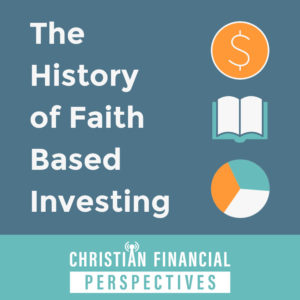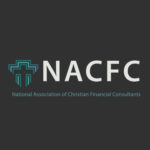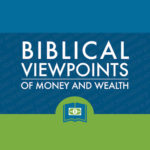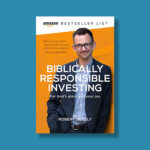Click below to listen to Episode 99 – The History of Faith Based Investing
Subscribe: Apple Podcasts | Google Podcasts | Spotify | Amazon Music | Stitcher | RSS | More
The History of Faith Based Investing
In every movement, there are pioneers and those who pave the way – those who step out in faith towards a great unknown. In this episode, Bob and Shawn talk about the pioneers of the faith based investing movement. For many years, people were unable to choose who and what their investments were supporting because there just wasn’t information readily available in order to make faith based decisions when it came to choosing where your money went.
However, that all changed in the mid 90’s when companies like “The Timothy Plan” stepped up in the investing world and trudged forward to create a way for Christians to invest in companies that they could be proud of – companies that aligned with the Christian faith. Thus, faith based investing was born and began to grow and take shape.
Christians are now able to line up their beliefs and moral convictions with their investments through faith based investing. You no longer have to stand idly by while supporting anti Christian agendas just so you can make money in order to retire. You have choices, and today, the faith based investing choices are greater than ever!
HOSTED BY: Bob Barber, CWS®, CKA®
CO-HOST: Shawn Peters
Mentioned In This Episode
Want to ask a question about your specific situation? Schedule a complimentary 15 minute phone call.
EPISODE TRANSCRIPT
[INTRODUCTION]
Welcome to “Christian Financial Perspectives”, where you’re invited to gain insight, wisdom and knowledge about how Christians integrate their faith, life and finances with a Biblical Worldview. Here’s your host Christian Investment Advisor, Financial Planner, and Coach, Bob Barber.
[EPISODE]
Bob:
Welcome to our 99th podcast. I mean, we are just one away now from number 100. And for those of you that listened to my podcast regularly, you’re probably thinking, where has Bob been? Maybe that’s wishful thinking, thinking that you missed me, but I will say this, our last podcast came out around the 4th of May. And then we just had a lot of things happening in the firm, with Christian Financial Advisors, and Bailey – y’all were used to hearing Bailey on the program with me and she decided to move on to another area of life. So she’s no longer going to be doing the podcast, but I have a really good replacement and I think y’all are gonna enjoy having Shawn Peters, happens to be my son-in-law, by the way, I think you’re gonna enjoy having Shawn on the program with me. Shawn’s a sharp cookie. Of course he is cause he married my daughter, Jenna. So the guy’s smart already.
Shawn:
You’re not biased at all on that, are you Bob?
Bob:
No. No, not at all. Shawn, tell our listeners – they’re not going to know you – tell them a little bit about yourself, and how you and I met.
Shawn:
Yeah, Jenna and I, Bob’s daughter, my wife, we met at Liberty University. We’re both going to school there. And from that relationship I had met Bob and he was, as many of you probably already know, was an investment advisor and still is. I actually had the opportunity to work with Bob right after school for something I thought was going to be maybe an internship to just kind of learn a little bit more about this industry and that very quickly turned into a job. And then Jenna and I got married about a year or so later.
Bob:
And what year was that, Shawn?
Shawn:
2008 was when I came out here and Jenna and I got married in 2009 and worked here from 2008 to 2013. At that time, I felt the Lord was calling me in a little bit different directions. So for about seven years, I ended up working in digital marketing website development area, just learned a lot of interesting things. And in early 2020, God changed the direction again and made it really, really clear that I needed to come back. And it’s a little bit different this time around, I’m a little bit older, hopefully a little bit wiser, I think.
Bob:
Everybody knows me as this ole country boy and especially those that have been listening a while. It’s so funny when our listeners call and they say, yeah, I’ve been listening to you. I know all about your family and everything. And I’m always teasing Shawn. Cause y’all, this is the real country boy in me. I’ll say you ever watched these cows and they’re always trying to eat the grass on the other side of the fence. And I know, Shawn, I’m just playing with you. You thought it was greener over there and I’m glad you came back.
Shawn:
I see it as the Lord had things he needed to teach me. And there was some skill sets that I needed to acquire. And now, I feel like I’m a little bit better of a more rounded individual to be working here and helping people as an advisor.
Bob:
Amen to that. Amen to that. And Shawn’s got a degree in finance from Liberty University. And you talk about an ace when it comes to Excel spreadsheets. I’ve never seen anybody work an Excel spreadsheet like you, brother. I mean, I’ve watched you on some of these and how you come up with all these formulas and you know them all. It’s amazing. Is this just something you were doing like when you were in grade school or something?
Shawn:
Actually, funny enough story. I don’t get to share this as often, but starting in either eighth grade or ninth grade, I don’t remember which year it was. My dad had an old laptop at the time. It was a Toshiba something and I started taking it to school to take notes. At the time, I’ve gotten a little bit better at it, but I was a little bit OCD on how I would write using just pen and paper and pencil. And it was bad to where I would constantly like go over my letters. And because of that, I was very slow at note-taking, but I really wanted to be able to listen. And so I had asked my dad if I could take the laptop to take notes. So I got really good at typing. That was kinda my first like getting into the computers and really ever since then, I just, it was just more and more and more just with computer stuff and I’ve never really been like a professional IT person, but I’ve just kind of always been fascinated in kind of gravitating towards technology, and funny enough that eighth grade, ninth grade time period with that laptop was one of my first entrepreneurial projects because of the 30 kids that were typically in some of my classes for note taking, I ended up selling my notes, typically $5 to $10 a piece. So all the other kids could just listen and didn’t have to write anything down. And then I would just print copies at the school. So I didn’t even pay anything for the materials. I got paid to print copies of my notes.
Bob:
So were you using Excel spreadsheets back then?
Shawn:
I think the first time I really started using anything like Excel spreadsheets was like my sophomore year. That was back in 2003? Yeah, I guess 2002, something like that. So yeah, I’ve had some years of experience. I grew up with it.
Bob:
Hey, I can do a better one on you than that. You ever heard of the Commodore 64?
Shawn:
I’ve heard of it. I’ve never owned one.
Bob:
That’s going way back there, brother. There was a Commodore 64, then the 128, then the 356, and we’ve come a long way since then. Well, we better get on with today’s podcast, but you’ll get to know Shawn over the following podcasts. And of course, you know me and for those of you that are just joining us, welcome by the way to our 99th podcast. The next podcast, which is going to be 100, we’re going to be sharing a lot of the history of the first 99 podcasts we made. And we’re going to be talking about those ones that are our most popular podcasts, but I thought today, something that Shawn’s watched his father-in-law get very involved in is what we call faith based investing. And by the way, this is probably the fourth or fifth way to call biblically responsible investing or morally responsible investing or values-based investing. Now, it’s called faith based investing. So today, I thought we would have a program on the history of faith based investing. That’s kind of the term being used today is faith-based investing, but it’s gone through a lot of changes and it’s an old movement now that’s been around quite a while.
Shawn:
Yeah. It’s very interesting. The concept of faith based investing, whether it’s, faith-based, biblically responsible, faith driven, socially responsible, all of these really you could group them together under values based investing. So, whatever those values might be, they’re all really just different terms or some of them are slightly different focuses of values-based investing. So what I’d like to know on behalf of our listeners, Bob, how did you first hear about the concept of values-based investing?
Bob:
How did I first hear about it? There was a part of it before before I even heard about faith based investing or values-based, morally responsible. Well whatever you wanna call it. It came back to being a Christian and when I was first getting into the financial services businesses, that’s basically what it was back then. Today, it’s called the financial advisory business, but back then it was called the financial services business or industry, and Shawn being that I love the Lord. I came to the Lord back in 84. So, I’ve been a Christian a long time when this idea came about that I wanted my business to glorify God in all it did and everything it does. So I started thinking, how does this apply to finance? And those that have listened to the podcast have heard me say many times, I’m a Proverbs, nut when it comes to the Bible. I love the book of Proverbs and it talks so much about handling money in Proverbs. If you want to be successful in handling money, just go to Proverbs. But around ’95, 96, 97, right in that era right in there, I started thinking in asking myself, who am I investing in? What companies are we investing in? Stocks, the stock exchange. And then along came this boycott, and those that know me know I’m Baptist. I was going to a Baptist church and the Southern Baptist Convention came out and they said there is a certain company that has decided to dedicate a day out of the year, and this was Disney back then, to honor the LGBT and the Southern Baptist convention were offended by that by taking a special day just to honor that group and the Southern Baptist Convention back then called for a boycott of Disney. Do you remember this, Shawn? Or were you old enough? I mean, you were about six or seven years old during that time.
Shawn:
Yeah, I don’t remember too much about that. Unfortunately, I have to date myself. Apparently, you became a believer about two years before I existed. I was born in late 86, and I don’t remember the boycott from my childhood. I just remember it since then, because of talking to you and other people telling me of when it happened.
Bob:
So what they really called it back then was Disney called it gay day. It wasn’t called the LGBT back then because the LGBTs came along later with that term. So, I started wondering just from that, what could born again, Bible believing Christians, if they’re investing in companies like Disney, could there be other companies that might be involved in agendas that would violate biblical principles? So I started digging and looking at companies and what they might be up to. Somehow somebody got me connected to a guy named Scott Fehrenbacher back then. And I Googled Scott just today, before we got onto the podcast, and he’s still around and back then he was putting together a spreadsheet of all the companies that may be involved in promoting the anti-family agenda, like the gay lifestyle or promoting giving money to Planned Parenthood, promoting pornography, abortion – companies that were in the abortion industry.
Bob:
And so he started coming up with this list that he was putting together and then starting to add the computer to it to where you could look up these companies. And then he put me in touch with The Timothy Plan. Now you’ve heard me mention The Timothy Plan many times. I was one of the very beginning investors with The Timothy Plan mutual funds. And if you go to The Timothy Plan today, you’ll see, they’re one of the founding companies of what was called morally responsible investing. That was the beginning term for it. And then Art Ally from that, and he’s been on my podcast also, he realized that morals can be defined differently, but not when you use the Bible. So he changed it from morally responsible when investing into the term biblically responsible investing. And this is where the terms have kind of changed throughout the year to make this clearer to the audience.
Shawn:
At the time of the morally responsible investing and then before Timothy Plan started using biblically responsible investing. It was a little more common of the idea of, I believe it was the ESG environmental, social, governance as the idea of the moral or morally responsible. That was kind of one of the first ideas for that, right? It wasn’t necessarily Christian.
Bob:
Right, right. And actually, when you look at it from the socially responsible investing compared to morally responsible, the difference is the same difference between conservative and liberal or Democrat and Republican. Okay. It’s that big a difference, back then it was. So, maybe they’ve come to align together a little bit, but really there is still a big difference today. So, if you’re thinking you’re morally responsible by being socially responsible, in many ways, you’re not at all.
Shawn:
Got it. Okay. Yeah. That makes sense. So, hearing a little bit about your first introduction or that first part of maybe I should be thinking about this differently. What were some of the challenges that you faced during those early days in trying to pursue this?
Bob:
There were lots of challenges, Shawn, there were a lot. First of all, there was just a handful of us in the beginning. And quite frankly, we were thought of as nuts. You guys are crazy. I mean, investing is investing? And you really think you’re going to make a difference by not investing in and staying away from companies that are involved in some of these agendas. And also, the big challenge was very limited mutual funds to pick from. The ETFs had not even come out there or if they had, they were just in the beginning stages in the secular market. So that was not even remotely thought of. And I remember when The Timothy Plan came out, their first mutual fund was a small cap value fund. And small cap value is a good asset class to be invested in, but it was not a great asset class in the beginning because the dotcom bubble was coming along. And it was invest in companies no matter what the price to earnings ratio was. And just bet on all these internet companies and values-based investing was not into that. I mean they’re looking into companies that are trading at a value, so that was not a popular fund back back then. So, the early adopters faced many challenges of diversification, a portfolio of diversified investments, that would be morally biblically responsible, and it was a challenge to our clients. And the people that came along beside and said, I want to be biblically responsible regardless of what the returns are, because I feel God owns it all and I want to honor him with it. So, lots and lots of challenges in the beginning days. Definitely. And just like you said, not being accepted in the overall industry, even amongst Christians.
Shawn:
So it sounds a little bit like the big challenges were being able to find investment options that would align with your values with the way you were trying to invest on behalf of clients that would also allow you to be properly diversified because obviously the goal is not only to be, in those early days, biblically responsible, but you do still need to adhere to sound financial principles and portfolio theory and diversification and all of that science. And then I guess the added challenge, it sounds like that unlike maybe today where where it’s becoming more commonplace that people know to even look for something like this as an option. We’re having to educate people from the very beginning of when they talk to you and explaining this concept and talking about that God does own it all. This is why we’re trying to do it, because most of those I’m assuming at the time before talking to you, maybe had never even heard of the idea.
Bob:
Absolutely. And it was it was not mainstream. It was in the beginning years, it was the pioneers. And I think of it like that, I think of some friends of mine that maybe a lot of people have never heard of, but Art Ally, Steve Ally, who has gone to be with the Lord now, have Timothy plan. I think of Mark Manila, a great friend of mine for many years with integrity investors. I think of Dave Hart, Dwight Schwart, and if these guys hear this podcast, they’re going to be honored that I mentioned their name. They were out there. And and then from this, there was an organization started, it was called the National Association of Christian Financial Consultants. And that organization never did grow to a huge organization because it was truly about being biblically responsible. And this is the way you’re going to do it. And if you’re not going to do it this way, just don’t be involved because this is what we’re about. In the later years came along a wonderful organization today called Kingdom Advisors. And a lot of people who will hear me talk about that, but there’s a lot of people in Kingdom Advisors that are still not subscribing to being biblically responsible, but they do integrate Christian principles in all the other areas of financial planning. But it’s still mind boggling to me that anybody would not integrate and not believe in biblically responsible investing because it’s such a part of like your core when it comes to financial advice and planning, because it’s investing is what we do. And once you get into biblically responsible investing, it kind of takes you along the path of opening all the other areas of your life up to God’s ownership of everything. I don’t know if that makes sense, but I hope it does.
Shawn:
Absolutely makes sense. Hopefully it makes sense for the listeners. I was going to ask you who some of your first partners or companies that you started working with in the movement. I think we covered those pretty well. Were there any others, besides the ones you already mentioned, were there any others that you had had found or partnered or had started working with kind of in the early days of that movement?
Bob:
Yeah. And they’ve been involved a long time, but I remember it was Ave Maria funds. They were Catholic funds, very, very pro-life later that came along was the Eventide Funds. And now of course I’m very, very close friends with Robert Netzly of Inspire ETFs, and man that brother caught the movement and just went on fire all the way. And he’s got a lot more energy than me cause he’s younger and I’m just really excited about him. We’ll talk about Robert here a little bit later.
Shawn:
That’s great. So one question that kind of comes to mind, can you explain for our listeners is the difference between the types of investing people have been hearing more about today? Because for example, people might hear about faith-based, faith driven, morally responsible, as we’ve already mentioned, and biblically responsible. And then there’s quite a few others that are probably out there that people have heard, but maybe you could talk a little bit about what are the differences between those, if there really are.
Bob:
Yeah. There’s not a lot of difference. And it’s interesting though, as I’ve watched this over the years grow where for some reason there’s been different names that have been more accepted. So, in the beginning was morally responsible then biblically responsible and then it changed to values based. And now it’s more called faith based, and I’m not sure, but for some reason along the lines and things change, but now it’s much more accepted with that term of faith based investing, even though basically at the core, it’s the exact same thing. So, I guess having the right name is that important. I’m not sure why that made it more mainstream, but it did, maybe because it was inclusion of all faiths, but it’s still Christian based. It’s still based on the word of God. Now, there are different ways that some of the companies handle faith based investing. Some companies will say, well, we’re not going to invest in a company that is involved in that industry. Okay. So, as an example, one of the major well-known funds that only used to be available to Baptists is Guidestone Funds. Guidestone is not going to invest in a company that is producing pornography. Okay. But they may invest in a company like Netflix or maybe Apple or Google that they’re not making pornography, but they show pornography through their networks, but Guidestone said, well, they’re not making it. So, we’re okay investing in that where there’s others that will say, if they’re giving that as a choice, we’re not going to invest in them. Does that make sense?
Shawn:
Yes.
Bob:
Let me give you another example that’s really clear. Maybe it’s a pharmaceutical company and maybe they’re using fetal tissue research, so we don’t want to invest in them, but there could be another company that’s not involved in fetal tissue research, but they’re giving money to Planned Parenthood, which is one of the largest abortion providers in the United States. So see, there’s the two differences there. The thing is, I don’t think we need to be beating each other up over exactly how it’s going to be done, but there is avoidance, but there’s also which I like about Eventide Funds that came along and said, okay, it’s not just about employment, but it’s also about inclusion and looking at the good side of companies. And this is where we have our seven investment management principles. And so, you look for companies that have pro-life values and companies that produces the things that we need and treats their employees well with fair pay and good benefits, good health insurance, retirement plans, provides a safe working environment and actually treats the environment good. Because if you love the Creator, take care of the creation. So do you see the different sides of this? In the beginning, it was all about avoidance. It’s still about avoidance, but they say, well, wait, let’s also look for companies that are doing good, not just avoid companies that are doing bad. And that’s where really the history of faith-based investing and where it’s come to today. And I’m excited about that because you don’t just always want to say, I’m doing well. I’m avoiding the bad. Well, let’s look for the good.
Shawn:
Makes sense. Yeah. So, the idea of looking for companies that they may not necessarily be Christian. Like obviously, our firm is very unapologetically Christian. We are Christian financial advisors, but not all companies that are good options that are making a positive impact are Christian, but there are a lot of companies that make a positive impact on their community, whether that be their employees, whether it’s their stakeholders, whether it be the customers that they serve or the actual community that they are located in. So yeah, that’s great. And I think that’s actually really encouraging, especially today, in my experience over the last 12 years of knowing about this, and seeing where we’re at now compared to hearing of when you first started. We really have that more holistic picture of avoiding certain negative issues, but also finding companies that should be celebrated for the positive impact that they’re having.
Bob:
We had the early adopters and then kind of the midstream adopters and then the later adopters. And in that midstream adopters, like in the last 5-7 years, not 20 years ago, but in the last 5-7 years, we’ve had some of the younger generation that I’m so excited about this come along. And this is where we get to mention Inspire Funds. I just love this brother, and he’s got that program called Inspire Insight and he’s working with Biola University to put this information together to where you can go put in any company and you can see the good and the bad, and then they come up with a score and what you’re looking for is a positive score on the company.
Shawn:
Yep. And also, I appreciate that Inspire is looking for both the avoidance on the negative and also looking for the companies that are on the positive side, like making that beneficial impact on their community and what they offer. I think that’s great just to see you that have Timothy Plan and Eventide and Inspire. And really, all of them have gotten to that point. Now, it’s kind of like the maturity of the sector or offerings have gotten so much better. And to me, it really speaks to difficult principles anyway, of just this holistic that when you’re held accountable and God owns all of this, it’s not just about what you’re not supposed to do, but it’s about what you should be doing. Like someone who avoids sin, but doesn’t reach out and help the elderly, doesn’t help those in need, doesn’t donate their time, doesn’t feed and clothe and visit people in prison. Not doing those doesn’t mean that you’re a bad person, but there’s more to it than just not doing the bad stuff. It’s about doing the positive things.
Bob:
The scripture faith without works is dead. And so looking for the good, and this has really taken us up is that where we are today is we’ve gone from, I remember in the beginning, I was there with the first $10,000, $20,000 getting into this movement. And now, this movement is close to a trillion. It’s gotten that big. Just praise God to watch this movement because now, really there’s no excuse for a Christian not to be biblically responsible, values-based, faith-based, whatever you want to call it. It’s all the same thing. Because in the essentials, it’s what matters. And you can invest in international. You can invest small cap growth, small cap value, large cap growth, large cap value, mid cap bonds, intermediate bonds, long-term bonds, short-term bonds, high yield bonds. You can invest in all the different asset classes amongst all the different categories and get a very well-diversified portfolio today and stay within being 100% biblically responsible. This is more exciting today than I’ve ever seen it. And that’s showing that this movement is going to continue to grow. And what excites me, too, in telling my fellow brothers and sisters in Christ, is it doesn’t make sense for you to go out and vote right and vote for conservative values and then go invest left. Cause you don’t need to be investing left. You can vote right and you can invest right as well.
Shawn:
Yeah. Well, I have one question for you, Bob, for us to wrap up. Do you have any reading recommendations or other resources maybe for our listeners that would like to learn more about what is now commonly known more faith-based investing?
Bob:
I do, Shawn, and I’m kind of a little bit biased because I wrote this Bible study, but I really believe it begins with the word of God and prayer. I had another client in the office with me the other day and they’ve got half of their investments biblically responsible and the other half is not. And I asked him, would you like the other half to be? And they go, well, we need to think about that and pray about that. And I said, well, here’s a copy of the Bible study, Biblical Viewpoints of Money and Wealth that I’d like to give you. Allow the word of God and the Holy Spirit to get ahold of your heart and see where that takes you. Because God’s not going to answer against his word. And if you need to pray about being biblically responsible when you know about it, you need to go seek the word of God. I have a hard time believing that God would not want all Christians to be biblically responsible with their investments. Robert Netzly from Inspire wrote “Biblically Responsible Investing”, another really good book. Timothy Plan just came out with one recently as well. And if you’ll go to their website, you’ll see it. It’s call “Investing With Purpose” and that’s by Art Ally. I would recommend those three to start with. And there are others, but I’m not going to overwhelm somebody.
Shawn:
That’s great. Just to recap, the name of the Bible study?
Bob:
It’s called “Biblical Viewpoints of Money and Wealth”. It’s seven sessions, but I’ll open it right up here really quick, and I’ll just give you an idea about what these sessions are, and we call them viewpoints. And the reason they’re viewpoints is because the first viewpoint is a biblical versus a secular worldview. And that’s what you’ve got to come down to, too, because biblically responsible, faith based investing is a biblical worldview. And then that second is who’s the owner? Who owns it all, and who’s the manager? And there’s a scriptural basis in there. Psalms 24:1 says, “The earth is the Lord’s and everything in it.” So, we have to come to that conclusion that God owns it all. It’s not us. And then the viewpoint of working in retirement, secular and biblical counsel, money and wealth, giving and blessings, and inheritance and legacy. It goes through those. And then, the other two books I mentioned by Robert Netzly and Art Ally, I would suggest those two.
Shawn:
I will warn our listeners, the Bible study that Bob mentioned is very Bible heavy. So make sure you have your Bible or your Bible app, because there there’s not a lot of words already pre-written for you. It is a lot of directed, “Go read this scripture. Now go read this scripture. Now read this scripture.”
Bob:
I don’t want to speak to someone. I want it to be the word of God speaking to their heart. Yeah. Shawn, thank you. Wasn’t this fun?
Shawn:
Great. I hope our listeners don’t don’t riot and will allow me to come back for the next one.
Bob:
Next one. All right. Well, that’s going to do it today. By the way, if you want some help, you can always go to Christianfinancialadvisors.com, ChristianFA.com. You can abbreviate the financial advisors if you don’t want to spell out financial advisors. You can just go ChristianFA.com. Our phone number is (830) 609-6986. We serve our brothers and sisters nationwide and would love to help you get a biblically responsible, faith based investing as part of your life and bring that to fruition. Thank you for sticking with us this long. That’s all for today.
[CONCLUSION]
That’s all for now.
We invite you to listen to all of our past episodes covering many financial topics from a Christian Perspective. To make sure you don’t miss any of Bob’s upcoming episodes you can subscribe to Christian Financial Perspectives on iTunes, Google Podcasts, Spotify, Amazon Music, or Stitcher. To learn more about integrating your faith with your finances, visit ciswealth.com or call 830-609-6986.
[DISCLOSURES]
Investment advisory services offered through Christian Investment Advisors Inc dba Christian Financial Advisors, a registered investment advisor registered with the SEC. Registration as an investment advisor does not imply a certain level of skill or training. Comments from today’s show are for informational purposes only and not to be considered investment advice or recommendations to buy or sell any company that may have been mentioned or discussed. The opinions expressed are solely those of the hosts, Bob Barber and Shawn Peters, and their guests. Bob and Shawn do not provide tax advice and encourage you to seek guidance from a tax professional. While Christian Financial Advisors believes the information to be accurate and reliable, we do not claim or have responsibility for its completeness, accuracy, or reliability.




















